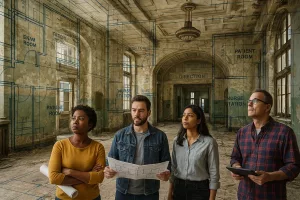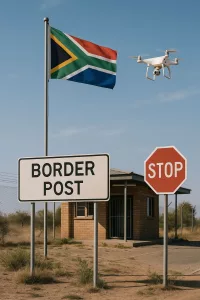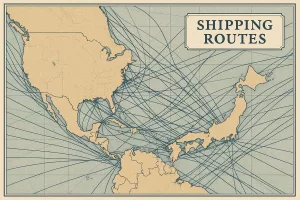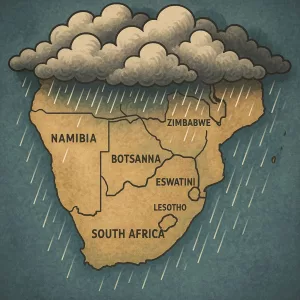Rachel Kolisi’s new film, “Falling Forward,” is a brave look at her tough journey. It shows her struggles with who she is, how she lost things, being a mom, and finding courage after her separation. The film isn’t about her marriage breaking, but about her finding herself again. It’s a powerful story of bouncing back and becoming strong, even when things are hard.
Cape Town’s old Woodstock Hospital is getting a new life! It will become a special place with 500 new homes, including many for people who don’t earn much. The coolest part is that the 837 people already living there will get to stay and move into these new homes. It’s a big plan with clever money tricks and community power to make sure everyone has a fair chance at a home.
African penguins are in deep trouble! Their main food, sardines, have mostly disappeared, especially when penguins need them most to change their feathers. This means many penguins starve, get sick, and can’t have babies. It’s a sad story of hunger and a changing ocean that threatens to silence their noisy islands forever.
Thabo Bester’s dramatic court appearance for “Project Houdini 2.0” was a spectacle of legal tactics. Surrounded by his lawyers, he took almost half an hour to walk 30 meters, while his team filmed everything. This new legal strategy, nicknamed Project Houdini 2.0, aims to dismantle the case against him with piles of paperwork, unlike his first escape. The court session was filled with bizarre requests, including demands for kosher meals and complaints about the air conditioning, all part of his lawyers’ plan to delay the trial. Even his coaccused, Dr. Nandipha Magudumana, brought her own legal fight, claiming she was kidnapped. This whole process is a complex web of legal maneuvers, with every motion adding to the chaos and pushing the trial further into the future.
Township Labs helps South African teenagers become ecoentrepreneurs. They turn everyday problems into green businesses, like using fly grubs to make fertilizer or old tech to create solar lanterns. These young innovators get training, money, and mentorship, transforming their communities and boosting the country’s green economy. It’s all about simple ideas making a big, positive impact.
South Africa’s border guards are doing a great job, stopping many people trying to sneak in. They cleared over 9 million travelers and caught thousands with no papers. Now, for the holidays, they have a big plan! They’re adding more staff, keeping borders open longer, and making sure everyone follows the rules for health, passports, and what you can bring into the country. They want everything to go smoothly for holiday travelers.
Mozambique and South Africa are becoming like best friends in business! They’re building cool stuff together, like roads and energy plants. Imagine fresh mangoes crossing borders super fast, and big power lines sharing clean energy. They’re even making it easier for traders to get money and for trucks to zoom through checkpoints. It’s all about making their economies stronger and helping people find jobs, using smart tech to connect everything like never before!
South African football is getting a super cool upgrade with new phones! Grassroots coaches now have special phones to track players, medical stuff, and even find new soccer stars. It’s like a secret weapon for finding talent and making the game better. This tech even helps find hidden fields and makes sure kids are healthy. It’s changing how football is played and managed, all with a simple phone.
The 2026 World Cup starts with a bang at the famous Azteca Stadium! Mexico, with a new coach and young, fiery attackers like Santiago Giménez, is ready to rumble. South Africa, using new tech and tough training, wants to surprise everyone. This game isn’t just about soccer; it’s a mix of old memories and new dreams, where every kick writes a fresh story.
The 58th SADC Parliamentary Forum Plenary in Durban, South Africa, is all about tackling big climate problems in Southern Africa. Lawmakers will talk about how to work together to fight climate change, especially helping women and young people who are hit hardest. South Africa, as the host, is showing its strong commitment to these important issues. This meeting aims to make Southern Africa stronger and safer against environmental challenges, building a better future for everyone.
The MK Party held a lively protest in Pretoria against a proposed 2% VAT hike, which they believe unfairly burdens workingclass people. Activists gathered passionately, calling for the government to find better solutions to the R60 billion budget deficit, like tackling tax evasion by big companies. Mzwanele Manyi, a leader in the party, criticized the government for ignoring their concerns and argued that the proposed measures wouldn’t help those struggling with rising costs. This event echoed South Africa’s fight for justice, showing how deeply the community cares about economic fairness.
Cape Town is a vibrant treasure chest of nature, known for its amazing plants and animals. The city is committed to protecting this natural beauty through a special plan that blends city growth with environmental care. This plan helps keep Cape Town’s unique ecosystems safe while inviting residents to share their thoughts on how to improve it. As the city looks to the future, it stands proud as a leader in conservation, showing that urban life and nature can happily coexist.
The Sand and Langevlei Canals restoration in Cape Town is a big effort to clean up and bring life back to tired wetlands. By removing mud and trash, and planting native plants, the project aims to improve water quality, reduce flooding, and welcome back frogs, birds, and fish. Local people are helping shape the plan, making sure the canals become a lively green space for everyone. This work is not just about fixing nature it’s about creating a fresh, healthy place where city and wildlife can thrive together.
Ouzeri is a charming CypriotGreek restaurant in Cape Town that brings the warm flavors of the Mediterranean to life. Opened in 2022, it’s already recognized as one of the World’s 50 Best Discovery restaurants, thanks to chefowner Nic Charalambous’s dedication to authentic recipes from his grandparents. The restaurant offers unique dishes like savory olive bread and stuffed cabbage leaves, all in a cozy, welcoming atmosphere that feels like a hug. With its focus on fresh ingredients and sustainability, Ouzeri is not just a place to eat; it’s a delightful journey into the heart of Mediterranean culture.
In the Western Cape, a heroic drug bust turned a regular day into a major victory against crime. With a thrilling chase, the Flying Squad intercepted a suspicious vehicle, unveiling a shocking stash of drugs worth R4.5 million hidden inside bubble wrap. This operation not only arrested a 44yearold suspect but also showed the community that hope and safety can overcome the darkness of the drug trade. As law enforcement continues to fight back, the people in Belhar and Ravensmead find strength and resilience, dreaming of brighter days ahead.
Cape Town is battling a serious crime problem, with illegal guns and violence causing chaos on its streets. Recently, police chased down suspects in Mitchells Plain after a shooting, showcasing the dangers they face daily. The city struggles with deeprooted inequalities that fuel crime, while law enforcement often feels overwhelmed, with many offenders escaping justice. Despite these challenges, Cape Town’s community and police work hard to create a safer future, highlighting the city’s resilience and hope amidst the struggles.
















